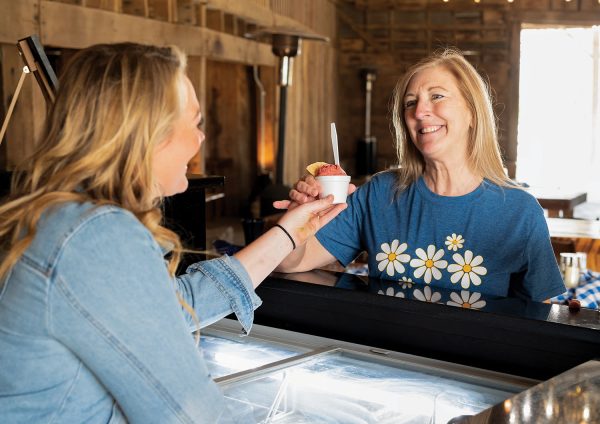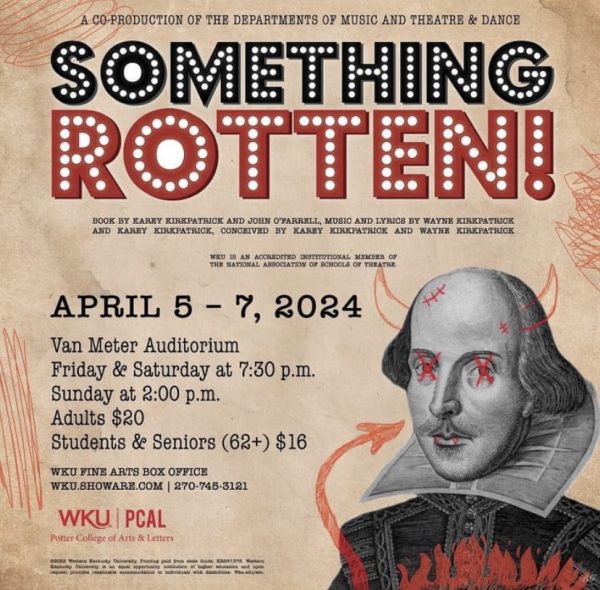Study abroad program takes students through Central Europe
October 10, 2016
In the summer of 2017, 20 students will get the chance to study abroad in the Czech Republic and Central Europe, a program offered through the Owensboro-Olomouc Sister Cities program.
“One key advantage this program has over others is the number of locations we go to,” Roger Murphy, associate professor of political science and one of the program’s leaders, said. “You get to see so many of the places where key events that shape the world happened. Especially when dealing with World War I and World War II.”
The program takes students through Central Europe to countries including Hungary, Czech Republic, Poland and Austria, separating the program from other study abroad opportunities with one destination.
Murphy said students who participated in the program in past years fell in love with Central European culture; one student decided to live there after taking the trip through the program.
“There’s so much of the culture that we experience,” senior Alexander Antoshak said, who traveled with the program this past summer. “It differed so much from American culture. We got to see kind of firsthand how they function as a society, and got to meet several government officials and politicians, several from the communist party.”
Antoshak said his biggest take-away from the experience was seeing these cultural differences.
“My favorite location was probably Budapest,” Antoshak said. “The city is full of amazing places and it has such a dark history to it.” One of the “amazing places” Antoshak mentioned was at a parliament square, where students got to see where some of the massacres happened while under the Soviet and Communist rule.
On the trip this summer, students visited a museum in Auschwitz, the site of a former German Nazi concentration camp in German-occupied Poland during World War II.
“You can’t explain how it feels to be there, so it’s definitely a plus to actually have that experience,” junior Katharine Belarmino said. Everyone learns about Auschwitz and what happened there during World War II, she said, but being able to visit was an experience she couldn’t put into words.
Erin Greunke, faculty-led study abroad program coordinator and a faculty leader of the program, said a study abroad program can be beneficial to a student because the student actually gets to experience a completely different culture, rather than just reading about it.
“You can read a lot of stuff in textbooks and not remember any of it sometimes,” junior Travis Henson said. “Say you’re learning about Budapest, and you can remember going to Budapest and learning about it in the city; you have a memory reference point rather than just something you read in a book. So it doesn’t get lost in the clutter, it sticks out.”
Murphy has been on the trip 15 times, and said he still looks forward to the next trip.
“Going to places like Prague, Olomouc or Budapest and seeing where all of these historical events happened, even after going there as many times as I have, can still bring a lump to your throat,” Murphy said.
Reporter Miles Schroader can be reached at 270-745-2655 and [email protected].
Ed. note: A previous version of this story indicated that students visited the Auschwitz concentration camp in Poland. There was never a concentration camp in Poland; rather, the museum the students visited is at the site of a former Nazi Germany camp in German-controlled Poland during World War II. The Herald regrets the error.













![Students cheer for Senator at Large Jaden Marshall after being announced as the Intercultural Student Engagement Center Senator for the 24th Senate on Wednesday, April 17 in the Senate Chamber in DSU. Ive done everything in my power, Ive said it 100 times, to be for the students, Marshall said. So, not only to win, but to hear that reaction for me by the other students is just something that shows people actually care about me [and] really support me.](https://wkuherald.com/wp-content/uploads/2024/04/jadenmarshall-1200x844.jpg)




![Megan Inman of Tennessee cries after embracing Drag performer and transgender advocate Jasmine St. James at the 9th Annual WKU Housing and Residence Life Drag Show at Knicely Conference Center on April 4, 2024. “[The community] was so warm and welcoming when I came out, if it wasn’t for the queens I wouldn’t be here,” Inman said.](https://wkuherald.com/wp-content/uploads/2024/04/smith_von_drag_3-600x419.jpg)






